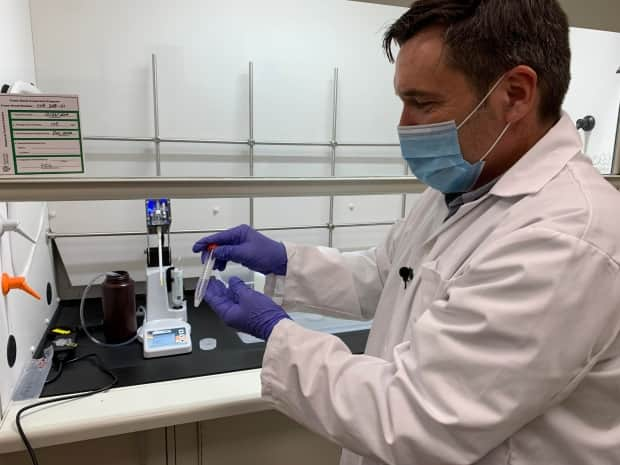Tracking COVID-19 in wastewater a good indicator of community spread, researchers confirm
A few months into a research project testing local wastewater for COVID-19, a University of Windsor group confirms the method is a strong indicator of the virus' presence in a community.
Since the summer, scientists at the Great Lakes Institute for Environmental Research at the University of Windsor have been taking weekly samples from four wastewater treatment plants: two in the City of Windsor, and one each in the towns of Lakeshore and Amherstburg.
Speaking to Windsor Morning host Tony Doucett on Wednesday, the institute's executive director, Mike McKay, said his team has found that the COVID-19 signals picked up in the water samples are consistent with the case load in the region.
"Everyone who's affected in [the] community contributes to [the] wastewater pool and so it really is perhaps one of the best indicators of the level of infections in the community," he said.
He said the timing is important, considering the province has switched to symptom-based screening, and has discouraged people without symptoms from getting tested. As a result, the true infection rate in a community can be unclear.
But McKay's research can help with that.

"We'd like to think of the wastewater stream as a community swab," McKay said. "There have been challenges to realizing wider scale testing. So how do we get testing done at the community level without having to, you know, test every single individual?"
"We can take a sample in our wastewater treatment plant, test for the virus and get an idea of the amount of infection within the community."
Right now, the information gathered by McKay's team is passed on to local officials and the Windsor-Essex County Health Unit on a weekly basis.
But McKay said other regions in the province, who are doing similar work, are testing wastewater on a daily basis and providing this information to the public. That more frequent testing, he said, will help them determine trends.
"We think that this can be another tool to be used by public health, especially because there's some indication that this wastewater detection of the virus can provide an early warning, maybe three to seven days in advance of clinical manifestations showing up in the population," he said.
The province is looking at rolling out a broader scale pilot for this sort of research, McKay said, adding there are early discussions about having his team join the project.

